LIXIL Introduces revia – A Circular Material Born from The Combination of Plastic Waste and Waste Wood
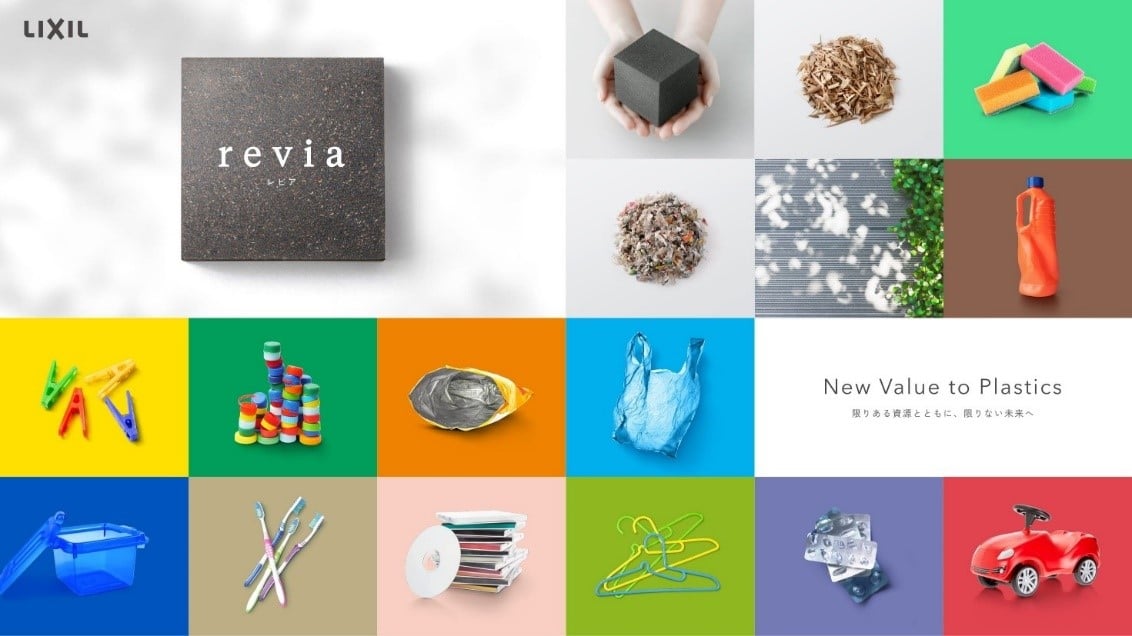
Tokyo - LIXIL Corporation (“LIXIL”, TSE Code: 5938), maker of pioneering water and housing products, introduces revia, which combines plastic waste and wood waste to create a material suitable for a wide range of applications. Bringing a new value to plastics, the first revia product will be “revia pave,” a paving material for sidewalks, plazas, parks and building exteriors, which will be available for sale in Japan¹ starting January 10, 2023.
Leveraging LIXIL’s expertise in pulverizing and molding plastics in combination with waste wood that is typically generated from the demolition of buildings, revia can be made from most household and commercial plastic waste including the composite types or even marine plastics. Utilizing plastic and wood waste to create one ton of revia that would have otherwise been incinerated after use can result in 82% reduction in CO₂ emissions.² The material itself can also be recycled³—collected to become revia products again.
Therefore, revia contributes to the environment in two key ways: by cutting the amount of CO2 generated by conventional waste processing and by enabling the responsible re-use of plastics as a raw material.
Plastic waste has more than doubled globally over the last twenty years, largely comprised of single-use plastics, yet only 9% is recycled.⁴ Most plastic waste is incinerated⁵ or become landfill, polluting the air and leaking into ecosystems. This represents an urgent and growing environmental issue around the world.
LIXIL President and CEO Kinya Seto commented, “Low recycling rates and pollution caused from plastic consumption is an environmental issue across the world. As a maker of pioneering water and housing products, we are committed to the responsible use of resources, and driving innovation to solve real-life challenges. With revia we aim to create an ecosystem that spans procurement to production, sales, installation and collection, establishing a sustainable business model that can be scaled. By doing so, we want to maximize our positive impact for the environment. Starting in Japan, and with the cooperation of partners and stakeholders including local and national governments, and industry associations, LIXIL believes that revia can accelerate the shift to a circular economy and make better homes a reality for everyone, everywhere.”
In Japan, 24% of plastic waste is recycled⁶. However, on a per capita basis, Japan is the second largest generator of plastic waste—disposing 8.22 million tons, or 22,000 tons per day.⁷ This April, Japan enacted the Act on Promotion of Resource Circulation for Plastics, to strengthen its efforts to circulate plastic resources across public and private sector. Japan has progressed from recycling mainly PET bottles, to closing the loop for other plastic resources including plastic containers and packaging used for take-out and groceries. Still, some types of plastics are deemed difficult to sort and recycle by local governments responsible for collecting waste. Composite plastics, or packaging film are one such example, which are made from numerous types of plastics to enhance functionality with several different properties, but continue to be incinerated or landfilled after use.⁸
Starting with “revia pave,” revia will expand its product offering beyond paving materials with series of various applications in the future.
Features of revia pave:
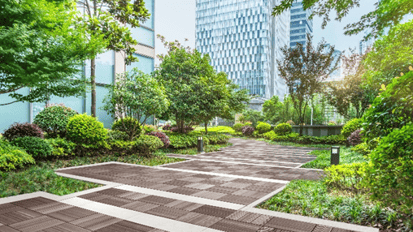 Designed as paving material “revia pave” is suitable for sidewalks, nature trails in national parks, plazas between office buildings and commercial facilities, and smart cities.
Designed as paving material “revia pave” is suitable for sidewalks, nature trails in national parks, plazas between office buildings and commercial facilities, and smart cities.
“revia pave” resembles the appearance of wood that blends with nature and its surrounding scenery, and has a textured surface that plays with light and shadow to create a pleasant ambience to spaces. Incorporating universal design principles, “revia pave” is comfortable to walk on, highly durable, weather resistant, and strong. Its weight is half of that of concrete paving material that helps alleviate the burden to install.
Circular material “revia” website https://www.lixil.co.jp/lineup/s/revia/ (Japanese only)
Paving material “revia pave” website https://www.lixil.co.jp/lineup/public/reviapave/ (Japanese only)
1 limited to Japan’s main island
2 calculated by method of estimation authorized by the Japan Smart Energy Certification
3 does not guarantee infinite recycling
4 OECD Global Plastics Outlook: Economic Drivers, Environmental Impacts and Policy Options (2022), https://www.oecd-ilibrary.org/environment/global-plastics-outlook_de747aef-en
5 includes thermal recovery
6 to be reused and sold as a new product or as part of
7 UNEP Single-Use Plastics: A Roadmap for Sustainability (2018), https://www.unep.org/ietc/ja/node/53
8 Plastic Waste Management Institute: An Introduction to Plastic Recycling (Japanese only) https://www.pwmi.or.jp/pdf/panf2.pdf
Related articles
-
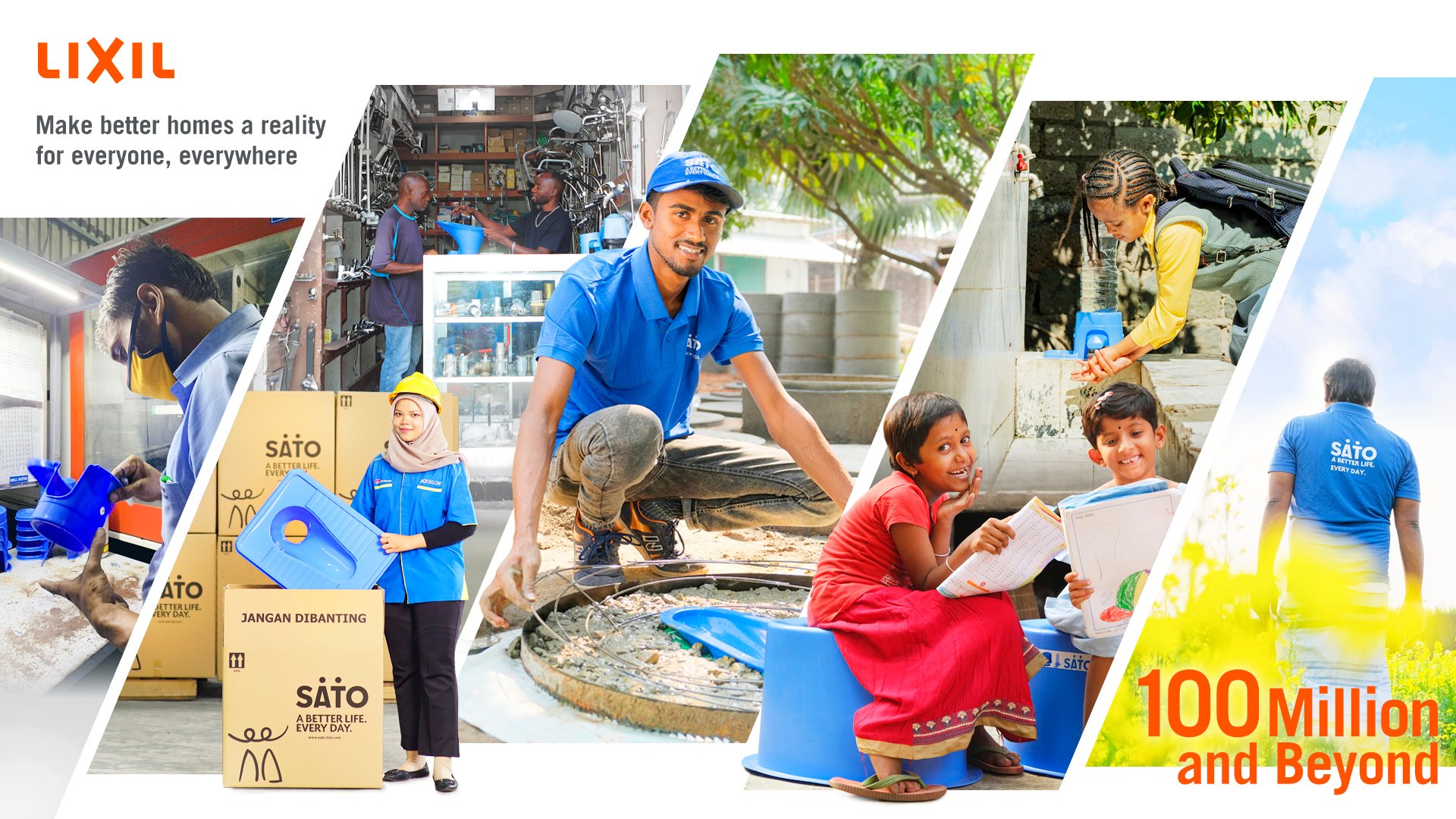 NEW
NEWLIXIL Reaches Major Milestone in Impact Strategy, Improving Sanitation and Hygiene for 103 Million People Globally
-
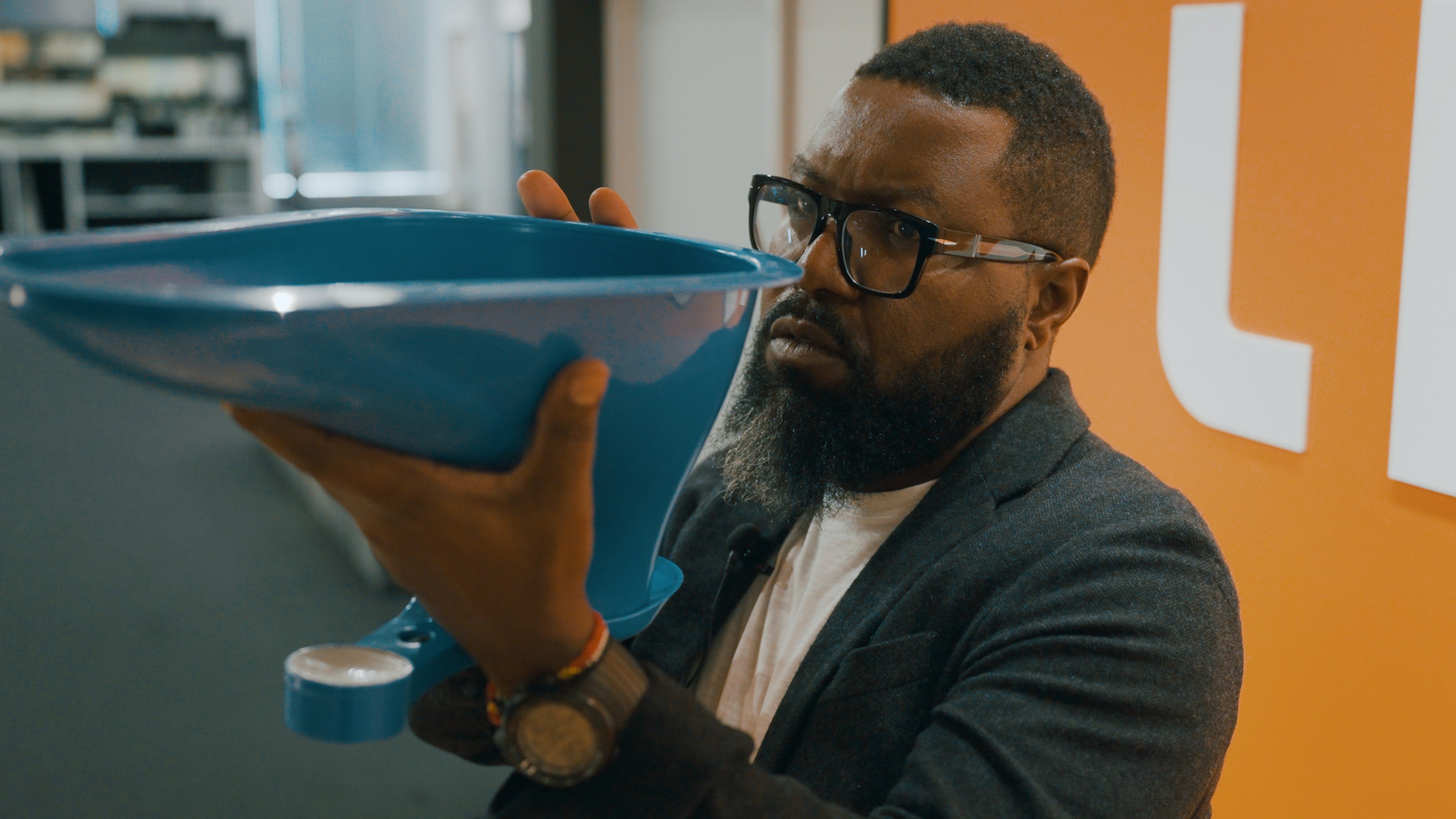
Alex Njagi: Why SATO's Sustainable Model is the Future of Sanitation
-
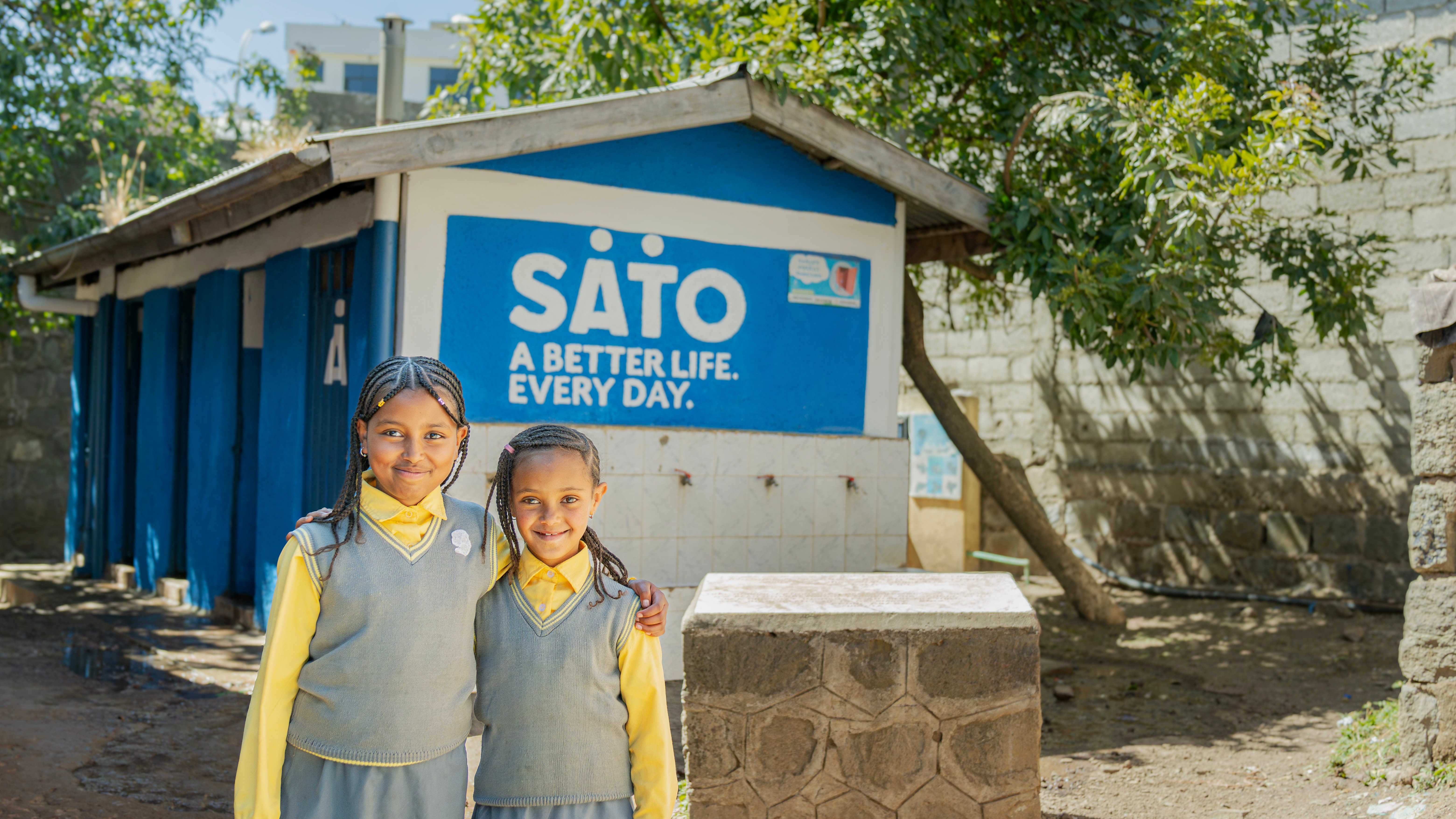
On World Toilet Day 2025, LIXIL Showcases Progress and Innovation in Tackling the Global Sanitation Crisis, Nearing 100 Million Milestone
